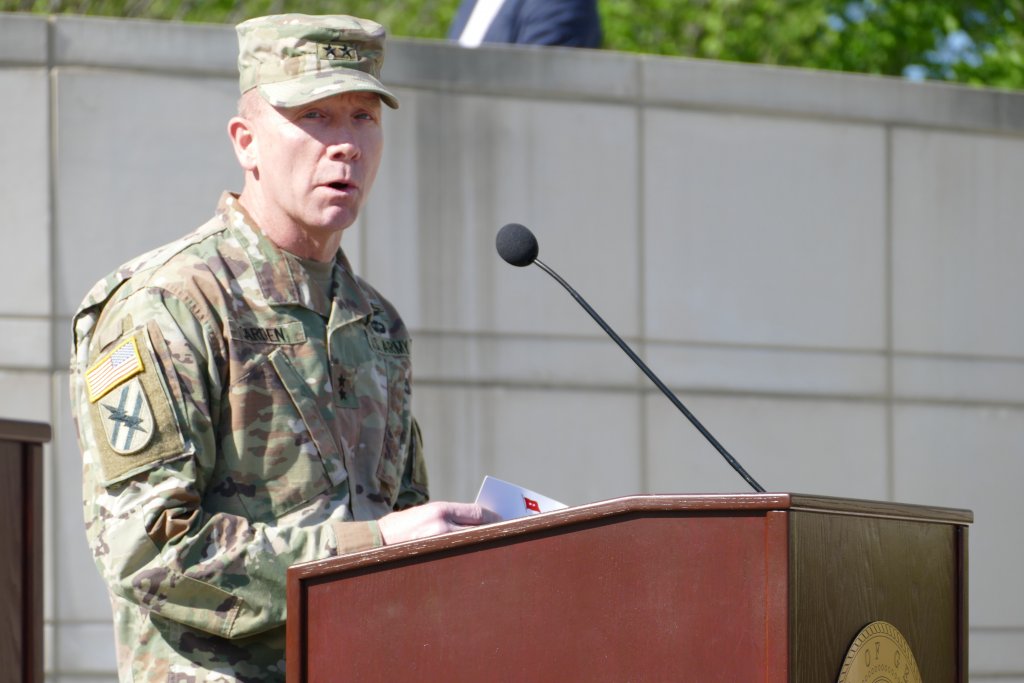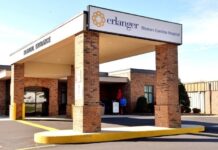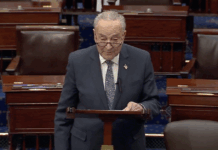
ATLANTA (GA Recorder) — The governor has called in the Georgia National Guard to help hospitals as they continue to swell again with COVID-19 patients.
Gov. Brian Kemp announced Tuesday the deployment of 105 National Guard personnel to 10 hospitals across the state, from Brunswick to Gainesville. Most of the hospitals receiving National Guard troops have reported severe overcrowding in their emergency rooms, and some of them are having to divert ambulances.
Kemp said in a statement that the troops “will assist our frontline healthcare workers as they provide quality medical care during the current increase in cases and hospitalizations.”
Hard-hit Phoebe Putney in Albany – where the hospital reached a new high for the number of COVID-19 patients Friday – is expecting 10 troops to arrive on campus Wednesday. The system’s president and CEO, Scott Steiner, celebrated the National Guard’s return.
“With 11 COVID-19 deaths in our health system since Friday, no one should question the severity of this current surge,” Steiner said in a statement.
Kemp leaned on the National Guard last year, particularly when it came to COVID-19 testing and other efforts meant to slow the spread of the virus at the state’s long-term care facilities.
In recent weeks, the governor has been under pressure to step up the state’s response to the latest surge in COVID-19 cases.
“We urge the governor and the state school superintendent to mandate masks and fund statewide incentive programs,” Georgia State House Minority Leader James Beverly and other members of the chamber’s Democratic caucus said in a joint statement Monday.
“Stop pushing back against vaccine verification and start invalidating anti-vaccine rhetoric. Take the active steps and come off the sidelines,” they said. “In one word, lead.”
MORE: Kemp deploys National Guard to fight COVID surge
The state saw more than 5,200 new COVID-19 cases on Tuesday, as the delta variant spreads quickly among the unvaccinated and even among some who took the shot.
But by far, most of the patients overwhelming the state’s intensive care units are not vaccinated. Southeast Georgia Health System in Brunswick, where some of the National Guard personnel are headed, made the point Tuesday: Of the 50 patients being treated in its ICU, only six were vaccinated.
At Grady Hospital, where troops will also be deployed, more than 90% of the patients hospitalized are unvaccinated.
Dr. Robert Jansen, chief medical officer of Grady Health System, said the troops are a welcome site at Atlanta’s busy level-one trauma center, but he hopes more people roll up their sleeve for the shot.
“Grady hospital is over capacity, our emergency room is at critical mass but Team Grady will continue to work tirelessly to provide exceptional care to all who come through our doors,” Jansen said Tuesday. “The guard personnel is a much needed additional resource to continue doing just that.
“It is our hope, however, that every Georgian talks to their healthcare provider and gets vaccinated against COVID-19,” he added.
RELATED: State superintendent says COVID vaccine saved him
In Georgia, nearly half the population has received at least one dose of the vaccine whereas nationally nearly 61% of the population is partially vaccinated. The U.S. Food and Drug Administration approved Pfizer-BioNTech’s two-dose vaccine Monday.
Kemp, who is vaccinated, recently announced another $125 million in funding to help hospitals hire 1,500 new staff, with dozens of them directed to rural hospitals.
But he has resisted calls to mandate masks and vaccinations. Instead, he has encouraged the public to consult a health care professional about the vaccine – advice he repeated Tuesday.
“I continue to urge all Georgians to talk to a medical professional about getting vaccinated,” he said in a statement.






